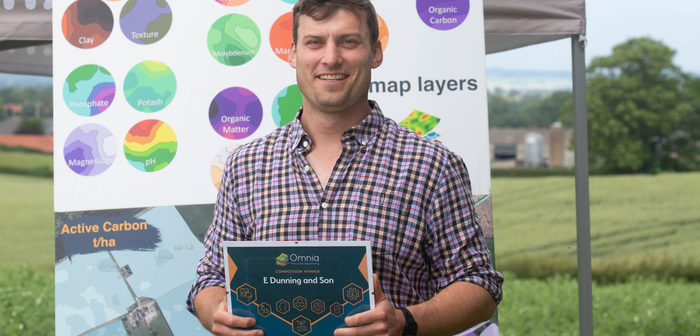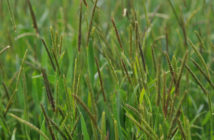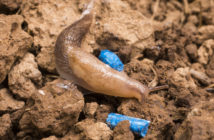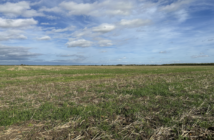Fourth-generation Yorkshire arable farmer Adam Hayward of E. Dunning & Son is planning to use the web-based Omnia system he won in a Hutchinsons competition earlier this year to collect and analyse data that will help him to fine-tune his farming practices.
Mr Hayward has a home-farm of 300ha and also rents land and does contract farming. His rotation is principally winter wheat followed by oilseed rape, spring barley and vining peas or spring beans.
Soils across Cold Harbour Farm, which is near Bishop Burton on the edge or the Yorkshire Wolds, are varied; while they include clay loam, silty clay loam and sandy clay loam, because they are on a chalk bed, they are all free draining.
Mr Hayward says: “There is a lot of information generated by the system and we are still learning about the enormous potential it offers, and how we can integrate it into our already established systems on-farm.”
He is impressed with how easy it has been to move data, for example from the Claas combine harvester straight into Omnia, and believes having all the data in one place will make it easier to access and analyse.
Accessible Information in one place
Hutchinsons agronomist Ben Jagger explains that Omnia is a platform that allows the grower to have all their information accessible in one place via the cloud as and when it is needed. The data is available for all parties on the farm, allowing collaboration between the advisor and grower.
Mr Jagger says: “Omnia will play an important role in planning drilling and fertiliser applications.”
“The Omnia Connect system is now linked to the farm’s Väderstad drill, which means that variable rate seed maps can be generated in the office and sent to the iPad which will control the drill box.”
The system links different map layers and agronomic factors together to ensure that the correct seed rate is being used this includes the soil texture, seedbed conditions, weed pressure and slug pressure. Each of these aspects can be mapped out individually and utilised part of the farms integrated pest and crop management plan.
Satellite information focuses the nitrogen spend
“In spring, as crop growth begins to accelerate, the need for nitrogen will be essential to aid the production of tillers from the beginning of stem extension going through to grain fill,” continues Mr Jagger, noting that the use of the satellite imagery module in Omnia will provide accurate normalised difference vegetation index (NDVI) maps to help focus the spend of nitrogen application.
As prices of nitrogen have more than doubled over the last year, placement of fertiliser is crucial, he notes, emphasising that following these unprecedented times Omnia now has the ability to adjust nitrogen requirements for the appropriate break-even ratio.
“This new functionality is an option during the requirements calculation where the average wheat price and average nitrogen cost can be entered.
“Omnia has a lot to offer, and I am looking forward to working with Adam using the system on the farms enterprise to help him reach his long-term goals.“




